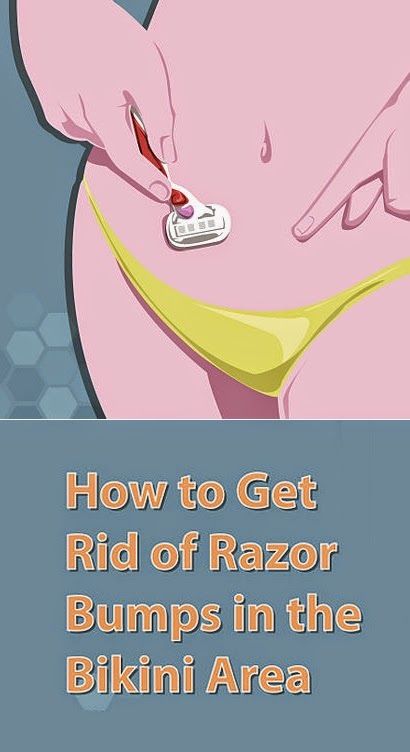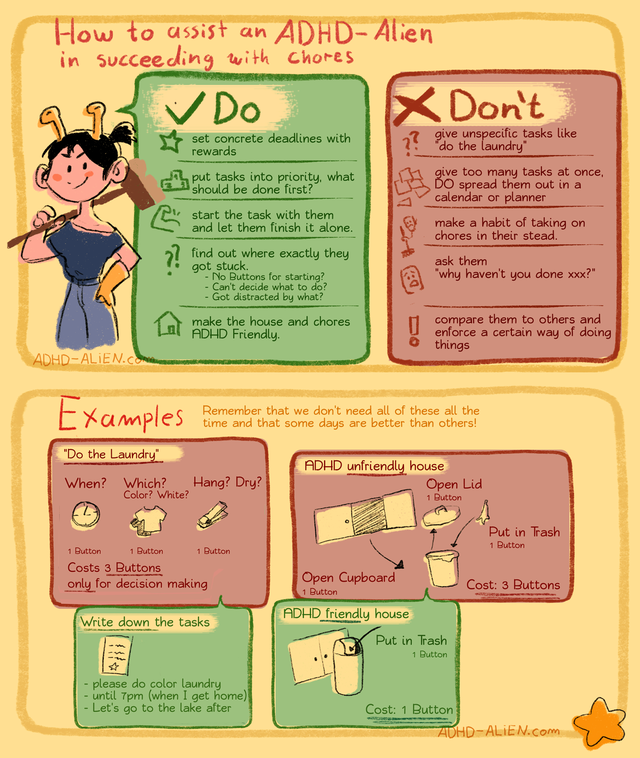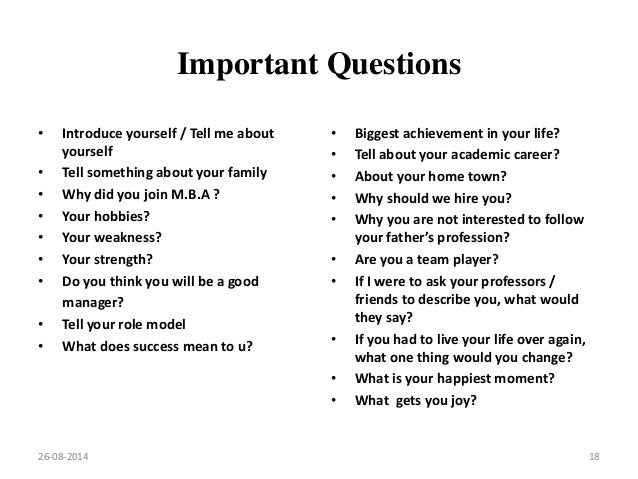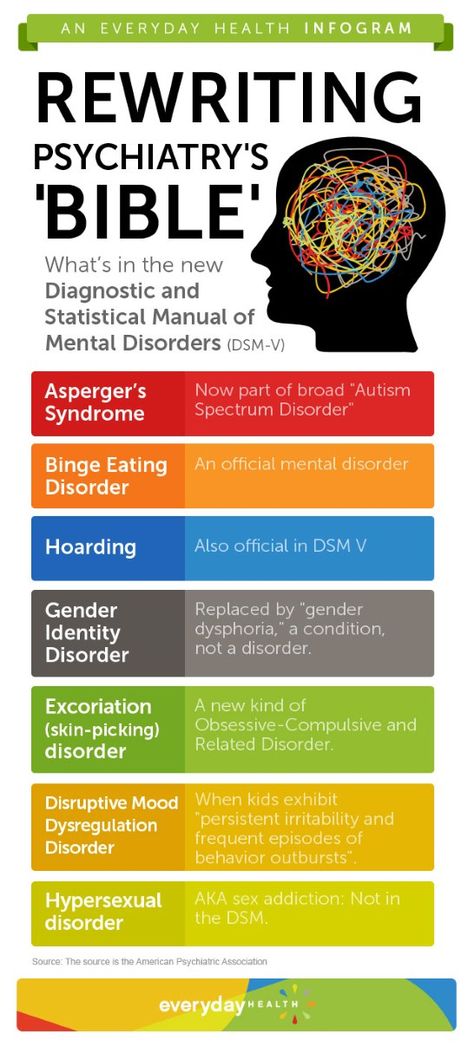How to get rid of perfectionism
10 Ways to Overcome Perfectionism
April 15, 2021
There’s a difference between being a high-achiever and being a perfectionist. Both types of people want to succeed. However, high-achievers are motivated to do their best, while perfectionists are motivated by fear, paralyzed by the idea of failure. Before we discuss how to overcome perfectionism, here are a few important things to know about it:
- Perfectionism can greatly diminish our self-esteem, enjoyment of life and sense of peace, as it can lead to immense stress, fear of judgement or worries of inadequacy.
- Traits of perfectionism are often linked to mental health issues, like anxiety, OCD and stress.
- People who are perfectionists put pressure to meet unattainable standards on themselves. They are highly critical of themselves and beat themselves up over anything that doesn’t meet their standards.
- Perfectionists also fear that if they don’t shoot for perfection, they will become low-achievers and not reach their goals.
- Sometimes perfectionists fear of failure is so terrifying that they procrastinate because they would rather not do something at all if it can’t be done perfectly.
- We harm other people when we buy into the myth of perfectionism, by setting unrealistic expectations for those around us.
1- Become More Aware of Your Tendencies
The first step to overcoming perfectionism is becoming aware of your perfectionist thoughts and tendencies. Take some time to pause and pay attention to your thought patterns around perfectionism. You might even try writing these thoughts down, to understand them better. Once we are aware of how we allow perfectionism to take hold of our lives, we will be more able to alter our self-talk around this issue.
2- Focus on the Positives
Wanting everything to be perfect means that we tend to fixate on the negative parts of our work or of ourselves. However, it’s important that we make a conscious effort to also recognize the good. For everything you’re not quite satisfied with, challenge yourself to identify three things that you do appreciate.
For everything you’re not quite satisfied with, challenge yourself to identify three things that you do appreciate.
3- Allow Yourself to Make Mistakes
When we allow ourselves to make mistakes, we can see that it’s not the end of the world when we fail. Mistakes are opportunities for us to learn, grow and do better. One way to practice this is by taking up a new hobby that you’ll likely not be good at on first try. Instead of trying to be “perfect” at it, focus instead on enjoying the activity and slowly learning how to get better. What you might find is that mistakes are necessary to get to where you want to be.
4- Set More Reasonable Goals
Perfectionists tend to set goal that are unrealistic, because of impossible standards. One way to let go of perfectionism is to set goals that are more achievable and SMART. We will feel much less stressed and more confident in our ability to reach our goals when they are realistic and challenging in a healthy way.
Helpful TED Talk on Perfectionism5- Learn How to Receive Criticism
People who are perfectionists tend to have low self-esteem because they take criticisms personally. However, constructive criticism that can help us learn and grow is important. Try to recognize that healthy criticism can be helpful and is normal because it can allow us to do better. Mistakes or missteps are perfectly normal along the way.
However, constructive criticism that can help us learn and grow is important. Try to recognize that healthy criticism can be helpful and is normal because it can allow us to do better. Mistakes or missteps are perfectly normal along the way.
6- Lower the Pressure You Put on Yourself
Remember that the person who pressures you the most is yourself. Be kind to yourself and practice self-acceptance by lowering unrealistic standards you set for yourself. If you are still motivated and doing your best, you’re doing just fine. There is no such thing as “perfect,” but we can be proud of doing our best.
7- Focus on Meaning Over Perfection
Try to shift your focus on finding meaning in what you do, rather than trying to do it perfectly. If something brings us joy and purpose, then it doesn’t matter if it’s not done perfectly. There is more fulfillment to be had in finding meaning along the way.
8- Try Not to Procrastinate
Perfectionists can be notorious procrastinators, giving themselves an excuse to slack off it they can’t ensure that they do their work perfectly. This can be really unhelpful and more stressful in the long run. The hardest part is always starting, but even creating a rough outline of our work ahead of time is better than nothing. Remember that it’s okay if your work isn’t perfect with the first try or first draft, and give yourself the grace to continue working on the project.
This can be really unhelpful and more stressful in the long run. The hardest part is always starting, but even creating a rough outline of our work ahead of time is better than nothing. Remember that it’s okay if your work isn’t perfect with the first try or first draft, and give yourself the grace to continue working on the project.
9- Cut Out Negative Influences
It’s important that we also monitor how things like social media, TV and movies, books, or podcasts can reinforce perfectionism. We should be especially wary of how social media promotes a narrative of “hustle culture” and perfectionism in our work. If you need to limit these channels, or delete them altogether, this can also help us shift away from perfectionism.
10- Go to Therapy
Lastly, therapy can help with our anxiety around perfectionism. Cognitive behavioral therapy (CBT) in particular can help people struggling with perfectionism reframe their thoughts. Therapy can also help you to better understand the deeper reason behind feeling the pressure to be perfect. If you find that you’re still struggling, therapy may be a good option to give you even more tools to overcome perfectionism.
If you find that you’re still struggling, therapy may be a good option to give you even more tools to overcome perfectionism.
Struggling to Overcome Perfectionism? How to Overcome Perfectionism
In this Article
- Signs of Perfectionism
- Types of Perfectionism
- Health Implications of Perfectionism
- Causes of Perfectionism
- Treatment of Perfectionism
- Tips to Overcome Perfectionism
Perfectionism is the belief that whatever you do must have no error or mistake. You might even feel unworthy, less likable, or like a failure when you make a mistake. A perfectionist is constantly striving toward perfection with the belief that imperfection is unacceptable. This way of thinking can be detrimental to your health.
Signs of Perfectionism
A lot of people are perfectionists in specific areas of their lives. If you find yourself wanting to achieve perfection in most things you do, you might be a full-time perfectionist. Some clear signs that you might be a perfectionist include:
Some clear signs that you might be a perfectionist include:
- You cannot start a task until you are sure you can execute it flawlessly (procrastination).
- You take much longer than others to complete the same task.
- You see the end product as the most crucial part of a task.
- You think a task is not done unless you think it is perfect.
Types of Perfectionism
There are three types of perfectionism. While the types have similarities, there are some key differences. The three types are:
- Personal standards perfectionism. This type of perfectionism is primarily healthy because you are motivated to achieve your high personal goals. Thus, you have lower chances of burnout or stress. You are less likely to inflict self-harm due to stress from attempts at perfection. Other people might think your standards are too high, but that only gives you motivation.
- Self-critical perfectionism. This type of perfectionism might cause you to feel intimidated or like you will never achieve your goals.
 The hopelessness this causes may lead to issues like anxiety disorders, stress, self-condemnation, and avoidance.
The hopelessness this causes may lead to issues like anxiety disorders, stress, self-condemnation, and avoidance. - Socially prescribed perfectionism. Here, perfection is demanded by an outside source. This can come from a job or career that requires maximum precision, like a doctor or a lawyer. People in these professions are more likely to have thoughts of hopelessness, stress, self-harm, or even suicide. Individuals with high social or cultural expectations placed on them may also be subject to socially prescribed perfectionism.
Health Implications of Perfectionism
Research has found perfectionism to be linked to some mental health issues. Some of these mental conditions include:
- Burnout
- Stress
- Depression
- Anxiety
- Suicidal thoughts
- Obsessive-compulsive disorder (OCD)
- Eating disorders
Other lifestyle issues that may arise include:
- Low self-esteem
- Frustration
- Procrastination
- Relationship issues
Causes of Perfectionism
Some factors known to cause perfectionism include:
- Fear of failure
- Feeling the need to please parents
- Wanting to be admired or loved by others
- Mental health problems like anxiety and obsessive-compulsive disorder
- Feeling insecure or inadequate
- Attachment problems with parents during early childhood
- Being a previous high achiever
Treatment of Perfectionism
Perfectionism can be difficult to deal with, but it is treatable. Therapy can be used to overcome perfectionism by managing the root cause of perfectionist behavior. A mental health professional will use the multidimensional perfectionism scale to find out what is causing your perfectionism before going into therapy.
Therapy can be used to overcome perfectionism by managing the root cause of perfectionist behavior. A mental health professional will use the multidimensional perfectionism scale to find out what is causing your perfectionism before going into therapy.
The types of therapy employed to overcome perfectionism include:
- Cognitive-behavioral therapy. This type of therapy shows the perfectionist that perfection is not necessary in everything they do. It teaches them that errors are acceptable and should not stop them from pursuing what they want.
- Hypnotherapy. Hypnotherapy helps manage the “all or nothing” mentality found in most perfectionists.
- Family systems therapy. Here, therapy is used to find out how perfectionism came up in the family unit and how it affected the subject as an individual.
Tips to Overcome Perfectionism
You can try to overcome perfectionism without relying on therapy. Some things you can do on your own to help manage your perfectionism include:
Some things you can do on your own to help manage your perfectionism include:
- Note down the advantages and disadvantages of being a perfectionist. Whenever you find yourself falling back into perfectionism, take another look at the disadvantages and move on.
- Set achievable goals for yourself. Setting attainable goals will keep you from pursuing unattainable perfection. This way, you can achieve your goals with the resources you have.
- Set time limits for tasks and make sure to follow them. To avoid spending excess time trying to perform a task perfectly, create a realistic time limit and stick to it.
- Avoid procrastination. Concentrate on the task instead of the end product. If you can break down your job into smaller, manageable bits to complete one step at a time, you may avoid overworking.
- Remember that mistakes are not bad. Celebrate them.
- Pursue different things that matter to you and make you happy. Avoid focusing on perfecting only one thing.

9 Practical Techniques / Sudo Null IT News
If you don't suffer from perfectionism, the question may arise: why do you need to get rid of the useful habit of doing everything well. Only now, perfectionism is not about “doing well”, but about “bringing it to the ideal”, most often unattainable and unnecessary.
So, PPC-specialists, and other employees of the digital sphere, will benefit from pedantry and attention to detail, but true perfectionism is more likely to harm. A simple example:
A little exaggerated, but something like thisThe first column contains the mandatory actions of an experienced specialist, without which a high-quality campaign cannot be launched. In the second - trying to make everything perfect. The problem is that all this will take a very long time and will hardly be noticeable in terms of advertising campaign. And in the first column we see what is called "to do", in the second - "to do". Feel the difference.
The costs and benefits of these actions are incommensurable, so such perfectionism harms rather than benefits.
The problem is also relevant because in the last 30 years the level of perfectionism has increased from generation to generation. Millennials are 10% more demanding of themselves and 16% more demanding of others than young adults in the late 1980s, according to a study by scientists published in the Psychological Bulletin.
So if you recognize yourself in the second column, let's move on to specific techniques that will help you stop striving for unattainable ideals and comprehend Zen.
1. Recognize the problem
Perfectionism is from the field of psychology, and here everything almost always begins with the recognition of the problem. Therefore, first of all, to make sure that it exists, remember the cases when, due to striving for perfection, you:
-
missed deadlines;
-
disappointed in a successful project due to high expectations;
-
refused a good client because they were afraid of failure;
-
were upset because your desire to do it perfectly was not appreciated by a client or manager;
-
didn't sleep for two nights working on a problem and were still not satisfied with the result.
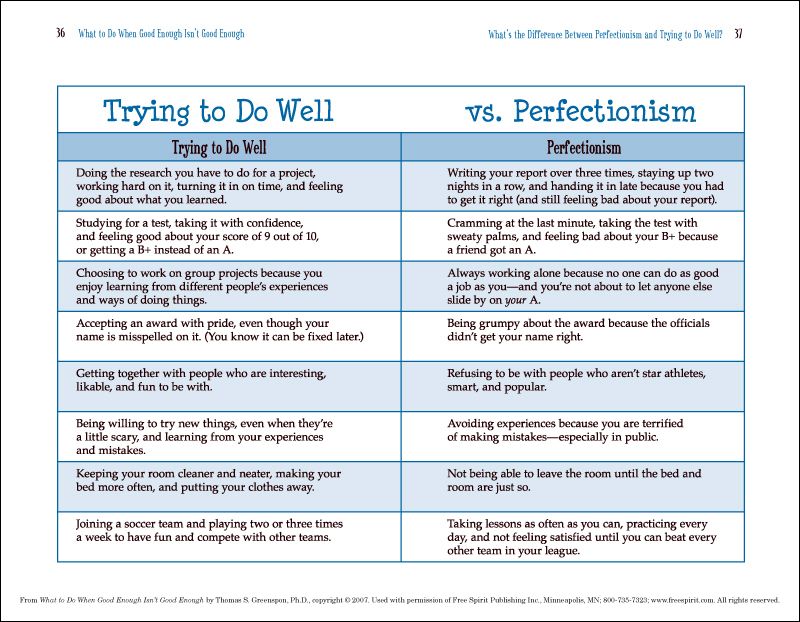
Now realize that this is not the norm and it is not necessary to feel unhappy until you achieve the ideal.
Of course, if everything were so simple, the article could end there. However, to recognize the unattainability and uselessness of the ideal is one thing, and to stop striving for it is quite another. Therefore, having realized the problem, we turn to practical methods and techniques that will help bring the internal perfectionist under control.
2. Limit time
In an effort to get the job done perfectly, perfectionists stick to the task for a long time, polishing and honing every little thing. For example, they endlessly select references for creatives in YAN, while the creatives themselves are not ready.
To track and prevent such moments, do each task for a strictly allotted time. For example, give yourself 2 hours to analyze a project for a new client, and then move on to the next case. This way you reduce the risk of spending half a day looking at all the competitors in context.
It is convenient to measure the time allotted for a task with a timer or through online time tracking services . Then, even if you lose control, the notification sound will help you regain focus and catch up on lost time.
Choose a timer with a browser extension so you don't switch between windowsAnd don't risk wasting too much time, think of Pomodoro. In the classical technique, the timer is triggered after a 25-minute work session and a 5-minute break - during this period, you simply do not have time to lose much time.
By the way, if you decide to work according to the Pomodoro technique, it will be convenient to measure time for tasks not in hours, but in “tomatoes”. That is, we allocate not 2 hours for the analysis of a new project, but 4 "pomodoros". It is convenient to keep such to-do lists in task managers combined with special “pomodoro” timers:
-
Pomotodo ;
-
Focus To-Do ;
-
PomoDone .
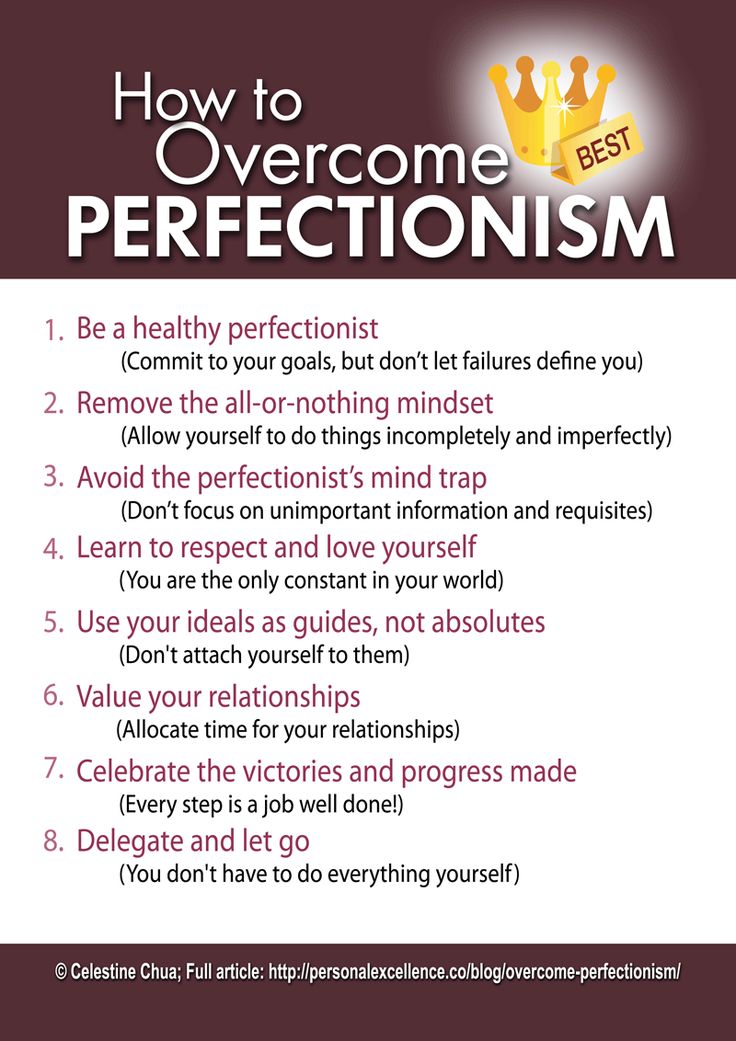
By the way, to spend less time creating creatives, you can use special tools , which we talked about in the blog.
3. Make a clear list of tasks
If you simply decide that you will complete the task in 2 hours, then the risk of getting stuck on the little things and running out of time will remain. To reduce it, fix the hourly plan - in a paper diary or online service. This can be a classic schedule with the distribution of tasks by hours of the working day, or just a list where each task has the time allotted for it.
This is what a Google Calendar morning schedule might look like4. Keep the goal in focus
In the pursuit of perfection, perfectionists easily lose focus. For example, they forget that the main thing is to launch a test campaign and accumulate statistics, and not to make the most effective advertising the first time. As a result, they spend three days on a thorough cleaning of semantics instead of getting the first result in the same time and realizing that other channels need to be tested.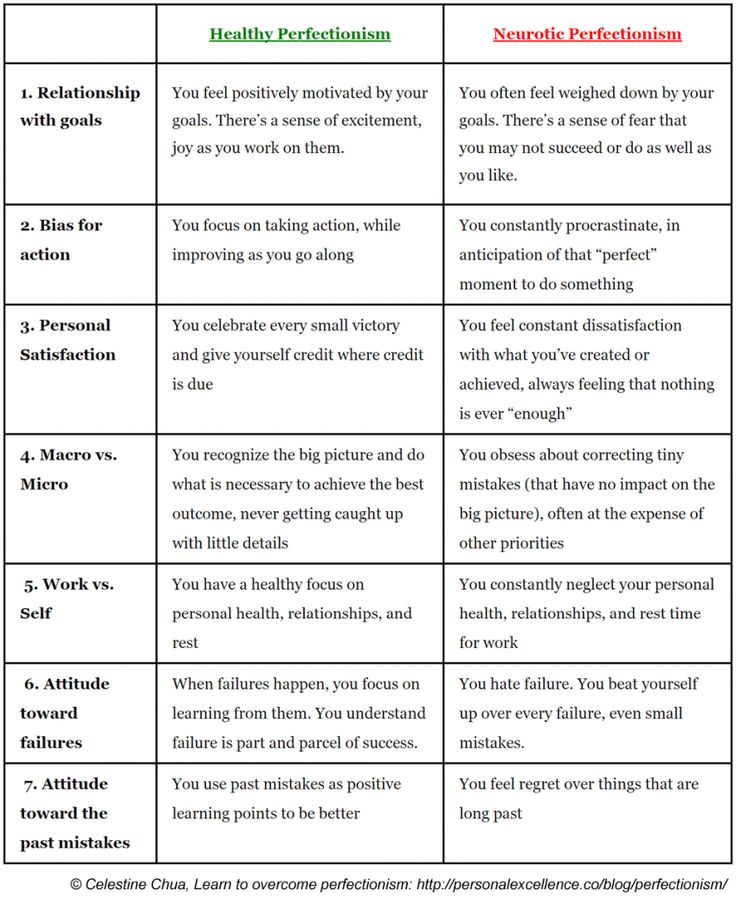
To avoid this, always remember the end goal of each task. At first, you can write it down in a nutshell next to it in the plan. Once formulated, you are unlikely to forget. And if this happens suddenly, the recorded target will always be in sight.
5. Formulate the result in advance
In addition to the goal, it is also worth formulating the result. Not the ideal that you always strive for, but the minimum necessary to achieve the goal. Knowing in advance what result you need to get, you can stop in time and not dig into the details.
For example, if you need to collect semantics to present a rough ad budget to a new client, a basic list of hot queries would be an acceptable result. It does not make sense to work out the core in detail here: the client may refuse simply because it is not profitable for him, and you will waste your time.
Spending time on unnecessary elaboration of details makes us feel like that white rabbit who was late all the time. For example, connect to affiliate program Click.ru and receive up to 18% of the advertising turnover of clients.
For example, connect to affiliate program Click.ru and receive up to 18% of the advertising turnover of clients. 6. Use the progressive jeep method
It was described by Artemy Lebedev in the context of design tasks, but the general principle applies to any work. The bottom line is that at any given time any project is 100% ready, only the degree of elaboration differs.
This is how Lebedev illustrated the principle in his HandbookThat is, when working on any project, you first make a rough sketch in general terms, and then gradually refine it. For example, when compiling semantics for a campaign, you first collect important basic queries, then work on them.
The progressive jeep method solves two problems at once:
-
it will not turn out that all the time has gone to the task, and you have it only 10% ready;
-
you can decide on the degree of detail that is necessary to obtain the result. And do not waste time on trifles that do not affect him in any way.

7. Let the product "rest"
This technique follows from the previous one. If you're 100% done with an incomplete version of a project, it can be helpful to leave it and move on to another task. Then you can look at the work with fresh eyes and understand what needs to be improved and what does not.
Perhaps in a day you will find that the product is almost perfectBefore the next call, remember the goal and the minimum required result that you formulated earlier. If the project already matches them, just stop. If not, determine what needs to be done to match.
8. Learn to delegate
Another pain of a perfectionist is the inability to trust someone even with the simplest things. It seems that no one can do the job as well as you, on the "five plus". And if so, it is better to do it yourself or not to do it at all. The result is known: a perfectionist spends a lot of time working on not the highest priority tasks, and what is really important for the implementation of projects and the achievement of life goals stands still.
Having mastered delegation, you will:
-
not spend your energy and energy on things that do not bring you closer to the goal;
-
make time for priority tasks that would benefit from perfectionism;
-
learn to deal more easily with the mistakes of others, and at the same time your own.
9. Relax
Afraid of making a mistake, not doing well enough and not getting approval, a perfectionist is in constant stress and nervous tension. It harms health, personal life and career. In addition, living with drive and enjoying what is happening in this state will definitely not work.
Therefore, it is important to learn how to relax, let go of the situation and rest. At first, meditation and hobbies can help with this, and in the case of digital specialists, digital detox and offline therapy. Choose the days and/or hours when you are not online at all: put your gadgets aside, turn off notifications. At such moments, it is useful to get out into nature and to interesting places, meet nice people and spend time actively - doing something that brings positive emotions and energizes you personally.
At such moments, it is useful to get out into nature and to interesting places, meet nice people and spend time actively - doing something that brings positive emotions and energizes you personally.
Useful books about perfectionism and fighting it
Want to learn more about perfectionism? We have prepared for you a list of books on this topic that are worth reading.
-
“Don't try to be perfect. Strategies for Combating Perfectionism, Anthony Martin M., Swinson Richard P.
-
The Perfectionist Paradox, Tal Ben-Shahar.
-
“Better than perfect. How to Curb Perfectionism by Elizabeth Lombardo.
-
“Praise me. How to stop depending on the opinions of others and gain self-confidence, Craig English, James Rapson.
-
“Confidence. A clear guide to getting rid of fears, complexes and anxieties, Caroline Foren.
4 easy tips to get rid of perfectionism
Skip to content
|
Perfectionism - an excessive desire to bring any business to the ideal, a tendency to make excessive demands on oneself and other people, which lead to doubt, insecurity and stress. Often the desire to achieve perfection leads to a disproportionate distribution of priorities: a lot of time is given to insignificant trifles, and the main thing is overlooked. As a result, the work stops at the first task and practically does not move forward. In this article, we will analyze what contributes to the development of perfectionism and how to overcome it.
Often the desire to achieve perfection leads to a disproportionate distribution of priorities: a lot of time is given to insignificant trifles, and the main thing is overlooked. As a result, the work stops at the first task and practically does not move forward. In this article, we will analyze what contributes to the development of perfectionism and how to overcome it.
Perfectionism usually develops in childhood when parents have high expectations or too much praise for accomplishments. Many people specifically contribute to the formation of this ability in themselves. Consider 4 factors that reinforce perfectionism:
- Fears. A person is afraid of his own failures and mistakes, of being rejected or ridiculed, even success can cause anxiety. Fear of the future gives rise to uncertainty, which in turn increases doubts about one's strengths and significance. Therefore, a person gets hung up on trifles and cannot go further.
- Incorrect settings.
 Our principles can lead us astray. For example, a person has failed and believes that everyone will turn away from him. But this is an erroneous opinion.
Our principles can lead us astray. For example, a person has failed and believes that everyone will turn away from him. But this is an erroneous opinion. - Strict requirements. You need to complete an urgent task, in the process you concentrate on the little things - for example, choosing a font for a long time and painfully, an ideal picture, thinking about images for a long time. This forces you to postpone the matter until later and find excuses in the desire to achieve high quality.
- High standards. All the previous factors are combined into one - unattainable standards, from which problems arise.
All these factors lead to the fact that a person begins to strive for unattainable standards, which acts to the detriment.
- Control your inner critic. This is the inner voice that constantly tells you that you are not perfect enough. Analyze your thoughts that make you find fault with trifles and worry.
 Find them a rebuttal.
Find them a rebuttal. - Change your own requirements and expectations. Ask yourself questions: how feasible are my requirements? Do they affect the quality of my life? Answering these questions honestly will help you look at yourself from the outside. After that, it is important to learn how to set goals correctly and calculate the result. This is best helped by the free online course "Goals and Results", in which you will find clear instructions for setting goals and calculating the result.
- Take a good look at the situation. Write down all your plans. For example, write 5 big articles in a day. Think about how long it takes you to write one article. Recalculate how many articles you can write. Most likely, it will be 1 or 2 articles per day. Make two lists of tasks - expected and realistic.
- Learn to accept your weakness. We are all living people with experiences and emotions. There is nothing shameful in fatigue, tears, resentment.
